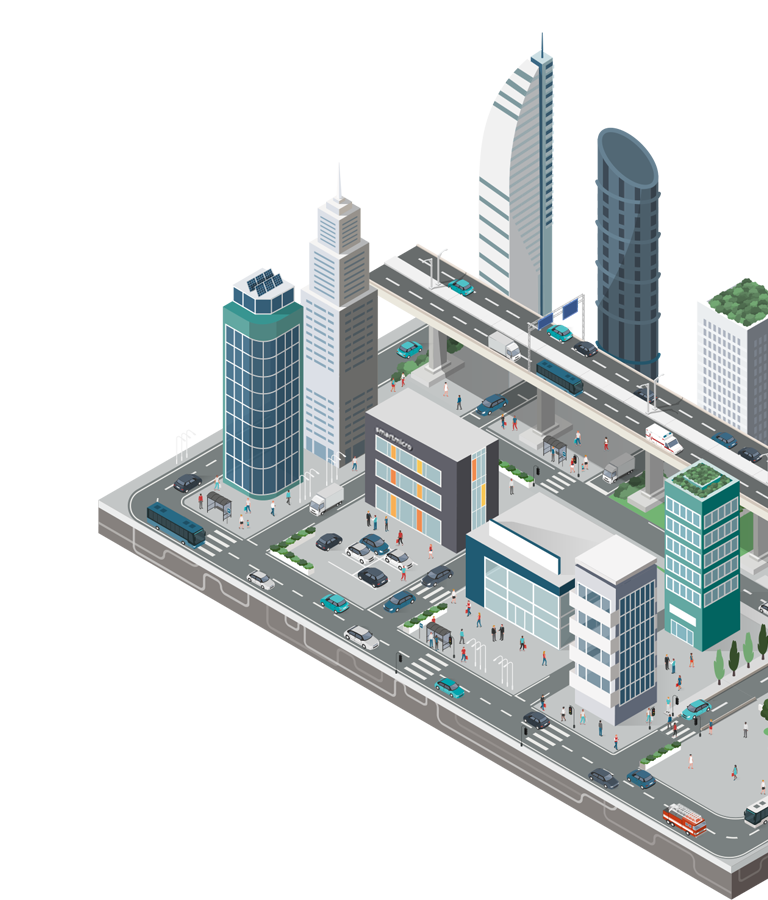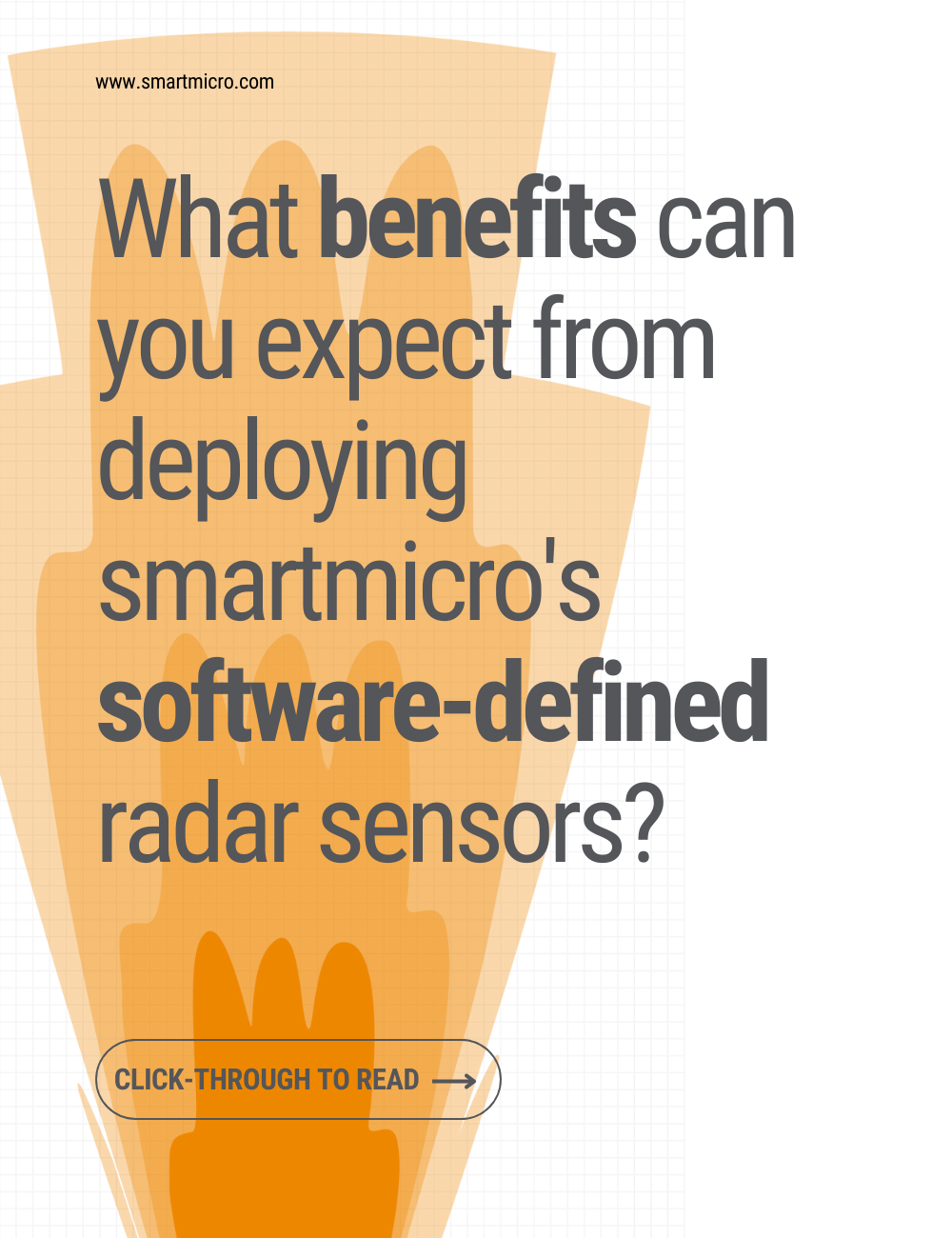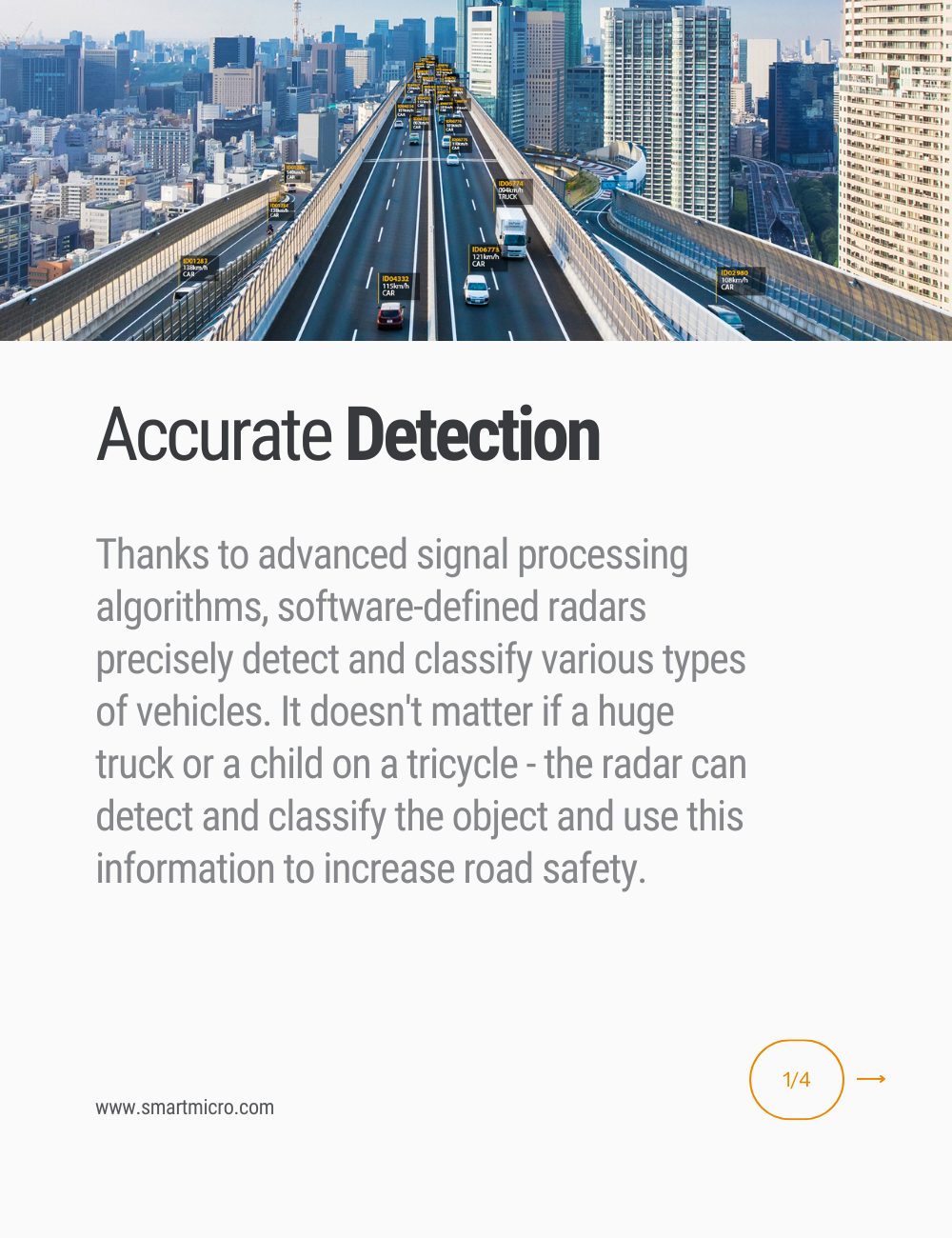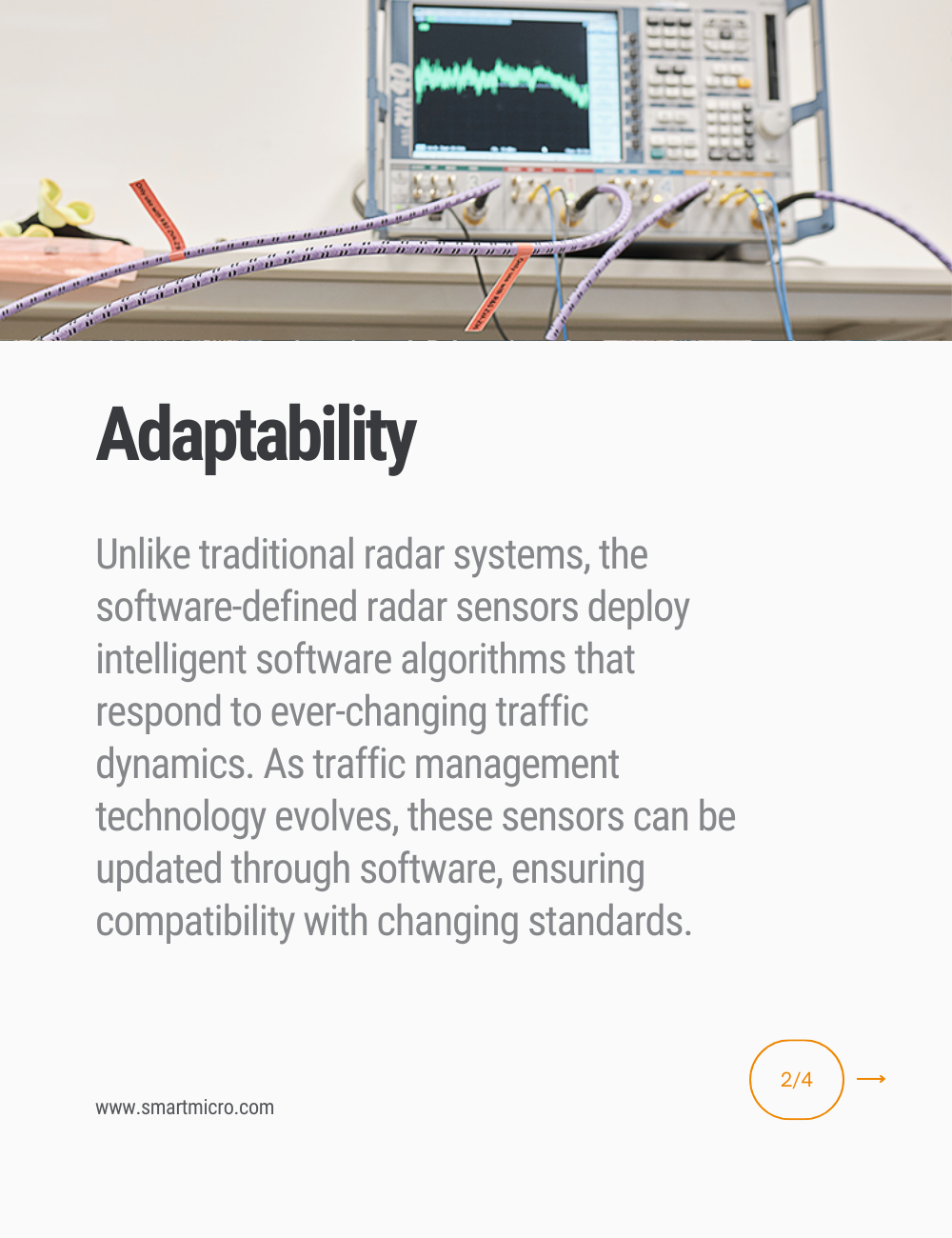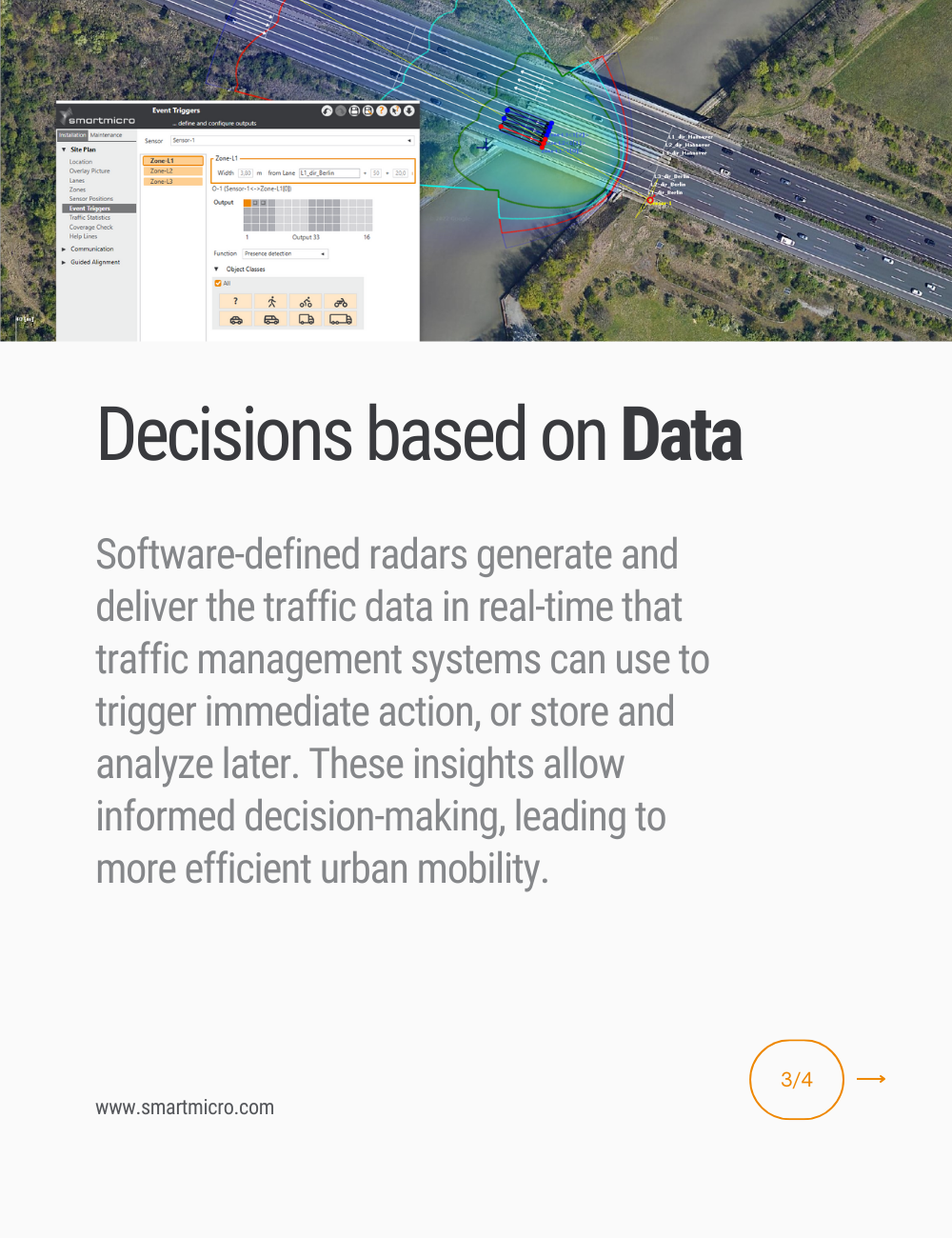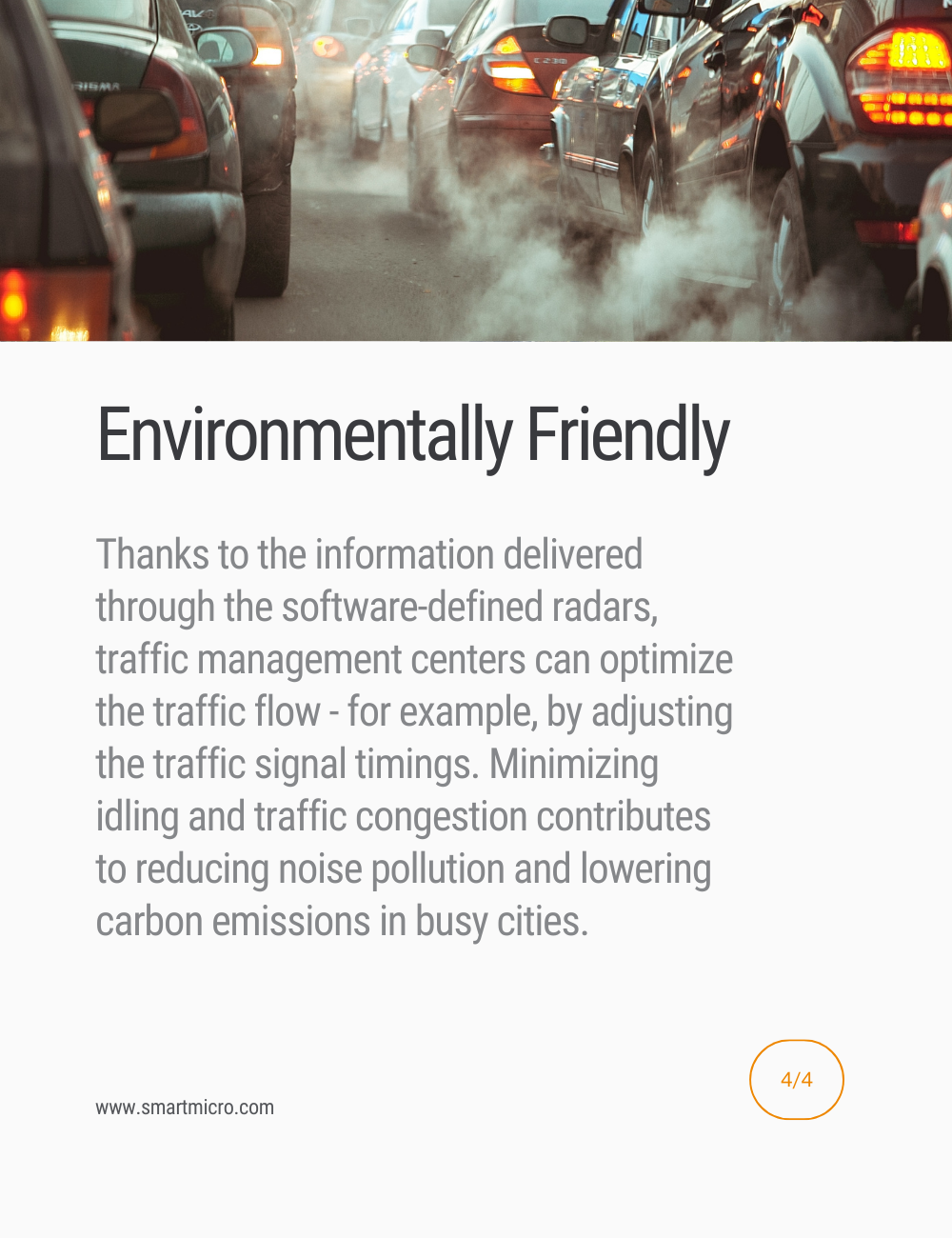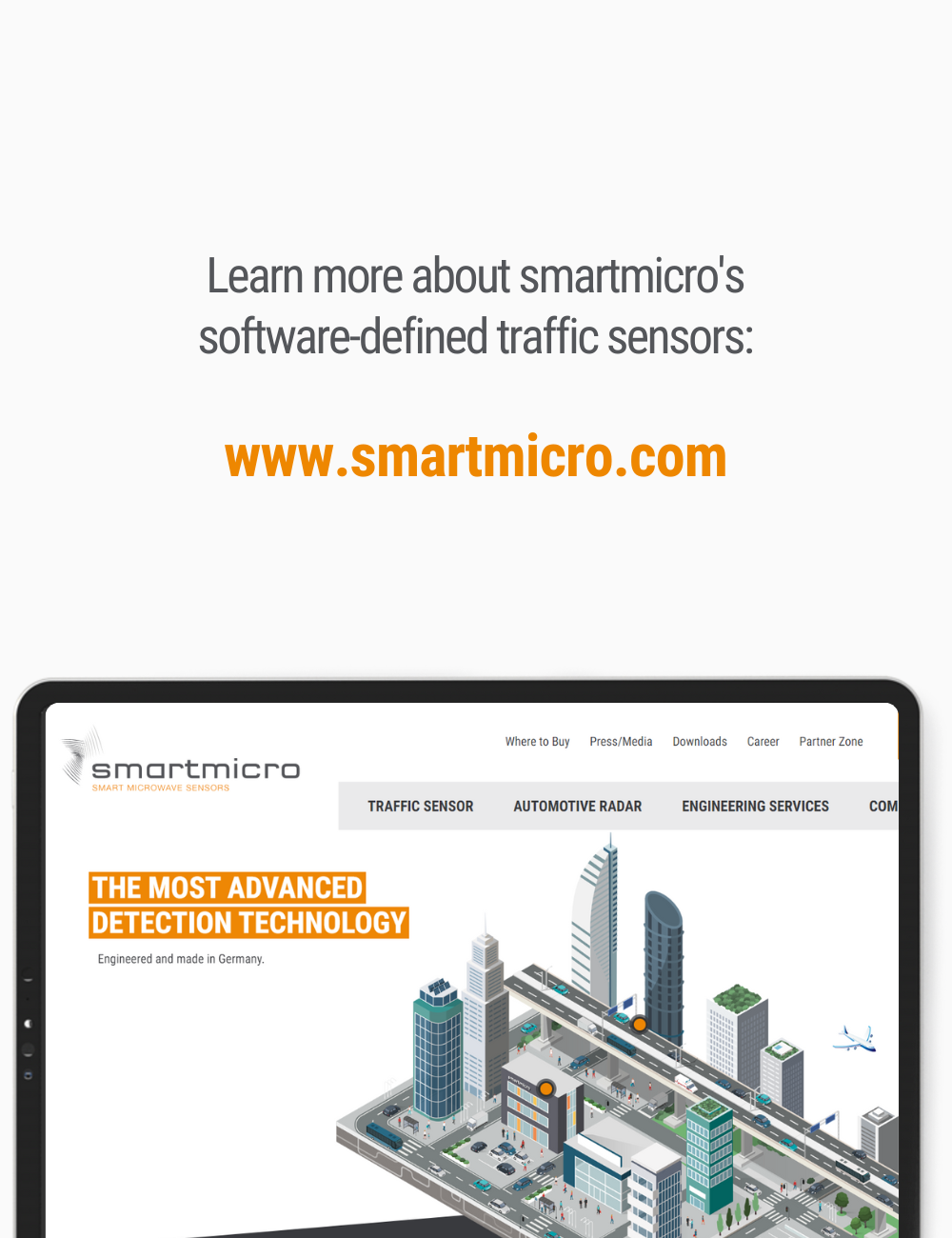State-of-the-art
radar technology
Latest Releases
Super Resolution AI Tracking - Seamless Tracking
Achieve full intersection visibility, precise turning movement counts, and enhanced safety for all road users - thanks to Seamless Tracking. Our patented multi-sensor fusion technology provides real-time data, optimizing traffic flow and increased classification accuracy.
News
What benefits can you expect from deploying smartmicro's software-defined radar sensors?
You might have known that smartmicro sensors are so-called software-defined radars. But do you know what advantages that has for your application?
Software-defined sensors use the software-defined radio (SDR) principles, which enables them to provide high performance and adaptability through software-based processing and control. It's one of the elements that make smartmicro sensors adaptable and capable of adjusting to match various applications' needs with one device.
Accurate Detection:
Thanks to advanced signal processing algorithms, software-defined radars precisely detect and classify various types of vehicles. It doesn't matter if a huge truck or a child on a tricycle - the radar can detect and classify the object and use this information to increase road safety.
Adaptability:
Unlike traditional radar systems, the software-defined radar sensors deploy intelligent software algorithms that respond to ever-changing traffic dynamics. As traffic management technology evolves, these sensors can be updated through software, ensuring compatibility with changing standards.
Decisions based on Data:
Software-defined radars generate and deliver the traffic data in real-time that traffic management systems can use to trigger immediate action, or store and analyze later. These insights allow informed decision-making, leading to more efficient urban mobility.
Environmentally Friendly:
Thanks to the information delivered through the software-defined radars, traffic management centers can optimize the traffic flow - for example, by adjusting the traffic signal timings. Minimizing idling and traffic congestion contributes to reducing noise pollution and lowering carbon emissions in busy cities.
What benefits can you expect from deploying smartmicro's software-defined radar sensors?
You might have known that smartmicro sensors are so-called software-defined radars. But do you know what advantages that has for your application?
Software-defined sensors use the software-defined radio (SDR) principles, which enables them to provide high performance and adaptability through software-based processing and control. It's one of the elements that make smartmicro sensors adaptable and capable of adjusting to match various applications' needs with one device.
Accurate Detection:
Thanks to advanced signal processing algorithms, software-defined radars precisely detect and classify various types of vehicles. It doesn't matter if a huge truck or a child on a tricycle - the radar can detect and classify the object and use this information to increase road safety.
Adaptability:
Unlike traditional radar systems, the software-defined radar sensors deploy intelligent software algorithms that respond to ever-changing traffic dynamics. As traffic management technology evolves, these sensors can be updated through software, ensuring compatibility with changing standards.
Decisions based on Data:
Software-defined radars generate and deliver the traffic data in real-time that traffic management systems can use to trigger immediate action, or store and analyze later. These insights allow informed decision-making, leading to more efficient urban mobility.
Environmentally Friendly:
Thanks to the information delivered through the software-defined radars, traffic management centers can optimize the traffic flow - for example, by adjusting the traffic signal timings. Minimizing idling and traffic congestion contributes to reducing noise pollution and lowering carbon emissions in busy cities.
Meet us

What benefits can you expect from deploying smartmicro's software-defined radar sensors?
You might have known that smartmicro sensors are so-called software-defined radars. But do you know what advantages that has for your application?
Software-defined sensors use the software-defined radio (SDR) principles, which enables them to provide high performance and adaptability through software-based processing and control. It's one of the elements that make smartmicro sensors adaptable and capable of adjusting to match various applications' needs with one device.
Accurate Detection:
Thanks to advanced signal processing algorithms, software-defined radars precisely detect and classify various types of vehicles. It doesn't matter if a huge truck or a child on a tricycle - the radar can detect and classify the object and use this information to increase road safety.
Adaptability:
Unlike traditional radar systems, the software-defined radar sensors deploy intelligent software algorithms that respond to ever-changing traffic dynamics. As traffic management technology evolves, these sensors can be updated through software, ensuring compatibility with changing standards.
Decisions based on Data:
Software-defined radars generate and deliver the traffic data in real-time that traffic management systems can use to trigger immediate action, or store and analyze later. These insights allow informed decision-making, leading to more efficient urban mobility.
Environmentally Friendly:
Thanks to the information delivered through the software-defined radars, traffic management centers can optimize the traffic flow - for example, by adjusting the traffic signal timings. Minimizing idling and traffic congestion contributes to reducing noise pollution and lowering carbon emissions in busy cities.


